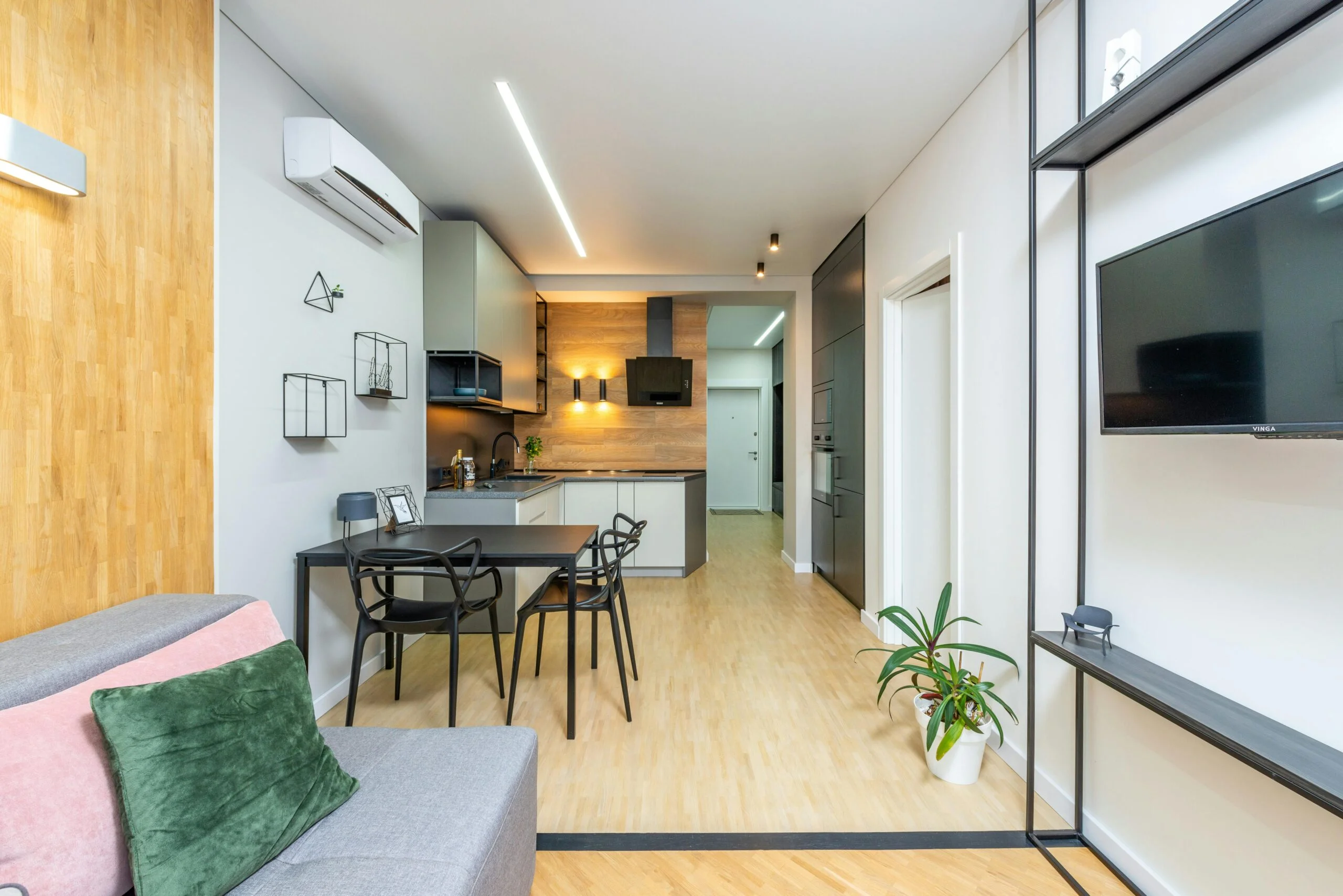Contact Us
Location
7/152 Bluestone Cct
Seventeen Mile Rocks
QLD 4073
How Do I Calculate What Size Air Conditioner I Need?
Temperatures are becoming increasingly more varied with the seasons and the need to heat the home in winter and cool the home in summer is more attractive than ever. As air conditioners become more efficient and less expensive to purchase you may be looking to install air conditioning in your home for the first time, or perhaps you’re looking to upgrade or expand on existing units. The correct size air conditioner is vital to ensure you are left comfortable for years to come.
How Do I Calculate What Size Air Conditioner I Need?
Ducted and split system air conditioners come in dozens of different sizes. Larger units have more cooling capacity, while smaller units have less. To ensure maximum efficiency, the size and cooling capacity of the unit needs to be matched to your home.
There are four major factors we use to calculate the size of air conditioner needed for a space:
- Split system air conditioning
- Multi-head split systems
- Ducted air conditioning
This is the biggest factor in determining the size of your air conditioner. Homeowners now have the option to choose between:
Generally speaking, split systems are used to cool a single room or space in your home. Split systems are compact, affordable and efficient, but they’re unsuitable for cooling large areas. If you want to cool multiple rooms at once, multi-head split systems are a new alternative to a complete ducted system.
If you want to cool your entire home, ducted air conditioning is the most effective option. Ducted air conditioners can cool many spaces simultaneously. This makes them more expensive to run, but they’re more efficient than installing multiple split systems in your home.
The Size and Layout of the Space
The size of your air conditioner is directly related to the size of the room it needs to cool. Large rooms need larger air conditioners, while small rooms can make do with small air conditioners.
But we also need to consider the layout of the space, how it was built and how it’s used. Your installer will look at factors like:
- How the home was built (e.g. brick veneer vs weatherboards)
- Wall and ceiling insulation
- Window and skylight placement
- Lighting
- The size and amount of furniture in the room
- The location of walls, doors and passageways
The effects of things like windows, doors and furniture on air conditioning is easy to see. For instance, if you wanted to cool a living room with large windows that let in lots of natural light, we would recommend a larger split system that can overcome the sun’s heat.
Similarly, the size of the air conditioner you need also depends on how well-sealed the house is. Sealed homes prevent draughts and air leaks. This makes them more efficient to heat and cool.
While there are formulas and online calculators available to help you calculate the capacity needed for your space, the best course of action is to have a professional consultation to properly assess your home. They can take into account factors that are not considered by the formulas and calculators.
Your Location
Where you live makes a big difference to the size of air conditioner you need. Homes in Brisbane typically need more powerful air conditioners than homes in cool climates.
Here’s the size of split system air conditioner you’d need to cool a small bedroom in each capital city:
| Location | Air Conditioner Size |
| Brisbane | 2.2kW |
| Sydney | 2.2kW |
| Melbourne | 2.4kW |
| Canberra | 2.4kW |
| Adelaide | 2.6kW |
| Hobart | 1.1kW |
| Perth | 2.8kW |
| Darwin | 2.6kW |

Your Budget
Finally, we need to consider how much you’re willing to pay for air conditioning.
Installing a split system air conditioner can cost anywhere from $600 to $5,500. The total cost depends on the system you’ve chosen and the complexity of the installation.
On the other hand, a ducted air conditioner can cost between $9,000 and $20,000 to install. Large ducted air conditioning systems are expensive to purchase, and they require significant labour during installation. This means they have higher upfront costs.
You may be able to save money by opting for a smaller air conditioner with less cooling capacity. However, be careful not to choose an undersized system. Undersized air conditioners will use substantially more electricity and they may be unable to cool your home.
What Size Split System Do I Need?
Split systems are sized to suit a single room or combined space. The output of these systems is measured in kilowatts (kW). So, how many kW split system do I need?
The size you need depends on the floor area:
|
Room Size |
Room Use |
Air Conditioner Capacity |
|
Small – Up to 20m2 |
Bedroom or study |
2-2.5kW |
|
Medium – 20m2-40m2 |
Master bedroom, small lounge room |
2.5-5kW |
|
Large – 40m2-60m2 |
Large bedrooms, lounge rooms and kitchens |
5-9kW |
|
Extra Large – 60m2 or more |
Open-plan living areas, large lounge rooms |
6-10kW |
The size of the air conditioner you need also depends on your ceiling height. The above figures are based on a standard ceiling height of 2.4 metres. Your air conditioner should be about 10% larger for 2.7 metre ceilings, or 20% larger for rooms with 3 metre ceilings.
What Size Ducted Aircon Do I Need?
The size of your ducted air conditioner depends on the total living area in your home (measured in square metres). There’s no one-size answer here, but you can use the following measurements as a guide:
|
Living Area |
Ducted Aircon Size |
|
Small home – 70m2 |
11kW |
|
Medium home – 90 m2 |
14kW |
|
Large home – 100m2 |
16kW |
|
Extra large home – 120m2 |
19kW |
Note that the living area is different to the total floor area of your home. You’ll need to measure the daytime living area yourself. This formula can give you a rough idea of how large your system needs to be.
Living area (m2) x 150 watts = Ducted Aircon Size (kW)
Multiply the living area by 150 watts for ceiling heights of 2.4m. Multiply by 160 watts for ceiling heights of 2.7 metres, or by 175 watts for 3 metre ceilings.
Make sure you’re only measuring spaces that you’ll be cooling during the day. There’s no need to include spaces like your garage or laundry room.
This formula only provides a rough idea. If you’re wondering what size ducted system do I need, the answer depends on ceiling installation, duct placement and how well-sealed your home is. Your best bet is to book a consultation with an air conditioning technician and let them assess your space.
Can an Air Conditioner be Too Big for a Room?
Yes, an air conditioner can be too large for a room.
Large air conditioners have the capacity to cool down your space in record time. It may be tempting to choose an oversized system so that you always have plenty of cool air, but that’s not always a good thing.
Oversized air conditioners will turn themselves on and off very frequently while being used to cool a room. This places significant strain on internal components and can shorten the lifespan of the unit. Plus, because they frequently cycle on and off, oversized air conditioners will struggle to dehumidify your home. This can cause your rooms to feel humid and sticky.
Larger air conditioners also cost more to run, purchase and maintain when compared to a unit that’s the right size.
How Do I Know if My Current Air Conditioner is Too Small?
Oversized air conditioners are a problem, but so are undersized units. Your air conditioner may be too small for the space if you notice the following issues:
Undersized air conditioners will struggle to keep a space cool. This means they run frequently and consume more energy. It can also place additional strain on the system and shorten its lifespan.
Air conditioners are designed to automatically turn themselves on and off to achieve your desired air temperature. Undersized air conditioners tend to run excessively because they’re never able to achieve the correct temperature.
Are there spots in your home that always feel hot, even when the aircon is blasting? That’s probably caused by an undersized air conditioner, or an air conditioner that has been placed in the wrong spot.
Low air flow can be caused by several common problems, but it can also be a sign that your air conditioner is undersized.
Get the Best Air Conditioner for Your Budget with Technicool!
The size of the air conditioner you choose can have a big impact on your budget and energy consumption. Selecting the right system means you’ll enjoy years of trouble-free cooling, and Technicool can recommend the best unit for the job!
Technicool offers air conditioning installation, repairs and maintenance across the Brisbane region. We work on split systems and ducted air conditioners from all manufacturers. Our team has vast experience in installing air conditioning systems, so we can help choose the best appliance for your home.
Our installation services come with a comprehensive design process. We’ll visit your property to measure and assess your spaces. Once we know more about your home and how you’ll use your air conditioner, we can recommend the right system for your budget.
If you’re thinking about installing a split system or ducted air conditioning this summer, book a consultation with Technicool!
Contact Us
Location
7/152 Bluestone Cct
Seventeen Mile Rocks
QLD 4073


